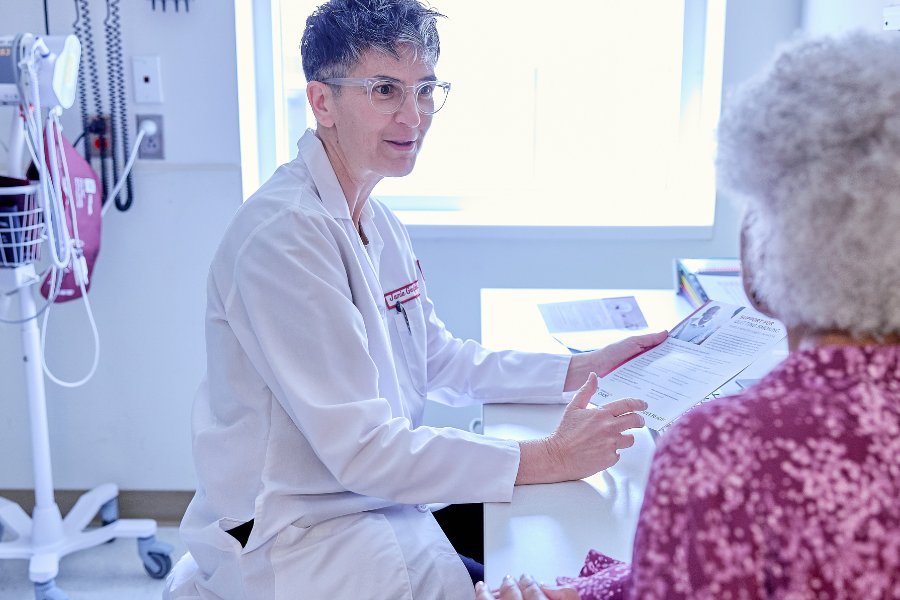Two COVID-19 vaccines are authorized for use in the United States and a few others are on the way. That means there is reason to be optimistic about the coming months. But the fast vaccine rollout has created some confusion about them.
As an infectious disease specialist at Temple, here are common questions I get about the two authorized vaccines, with some information on others that are coming.
Are there any differences between the Moderna and Pfizer-BioNTech vaccines?
There are small differences between these COVID-19 vaccines. One of those differences is the period between the first and second doses:
- For the Pfizer vaccine: 3 weeks between doses
- For the Moderna vaccine: 4 weeks between doses
That does not necessarily mean that if you get your second dose of the Moderna vaccine 3 weeks after the first it’s going to be any less effective. These intervals were just how the clinical trials were structured.
Another difference is how the vaccines are stored:
- The Pfizer vaccine requires a super-cold freezer, which may make it harder for some places to store. It is only good for 5 days after thawing.
- The Moderna vaccine can be stored at a regular freezer temperature. It can be be used within 30 days of thawing.
Do either of these vaccines contain the actual virus?
Until now, most vaccines used small bits of a virus to achieve protection. These two COVID vaccines do not do that. Instead, they use a technology called mRNA to get the body to protect itself against the coronavirus. This technology has been developing for many years, but the COVID vaccine is the first time it’s been in wide use as a therapy.
Learn more about mRNA in this video Q&A panel session with experts from Temple Health and Fox Chase Cancer Center.
Is one vaccine more effective than the other?
Both vaccines are very effective. During clinical trials, they were both found to be more than 90% effective in keeping people from getting sick from the coronavirus. That is a remarkably high number and one that gives us hope that we can end this pandemic.
Is one safer than the other?
They are both very safe. During clinical trials, no serious side effects or problems were found. Both vaccines have been carefully tested and authorized by the U.S. Food and Drug Administration (FDA).
What about the severe allergic reactions that have been reported?
We have not seen anything like that at Temple. But some vaccines — not just these COVID-19 vaccines — do cause a very small number of people to have bad allergic reactions, called anaphylaxis. For that reason, we have people stick around for 10 to 15 minutes after they receive their shot. That way, if anyone has a reaction, we would be right there to care for them.
If you have had allergic reactions in the past because of a vaccination, talk to your doctor before getting the COVID-19 vaccine.
The vaccines by AstraZeneca and Johnson & Johnson look like they’re the next in line to be authorized by the FDA. Should I wait for one of them?
No, do not wait. The best COVID-19 vaccine is the one that’s in your arm. Think of it this way: There are a lot of different routes to get from Philadelphia to New York. No matter which one you take, the destination remains the same. The vaccine you should take is the one you’re offered first.
With news of a more contagious mutation spreading, will these vaccines still be effective?
I know “mutation” can be a scary word, but it’s actually very common for viruses. The mutation you’re hearing about does seem to spread more easily. But the symptoms of the virus are not any worse. Researchers are continuing to study the vaccines, and early reports are showing that the vaccines are just as effective against the virus mutations.
So, continue to wear a mask, keep a safe distance from other people and wash your hands. And get the vaccine, any vaccine, as soon as it’s made available to you. That’s how we move beyond this virus and out of this pandemic.
Helpful Resources
Looking for more information?
- What you need to know about getting the vaccine
- Read the latest information about the COVID-19 vaccine
- Receive email updates about COVID-19 from our experts
- Watch our COVID-19 vaccine Q&A panel discussion series on Youtube
- See how we’re keeping our patients and staff safe
- Learn more about protecting yourself and relatives from COVID-19 >


